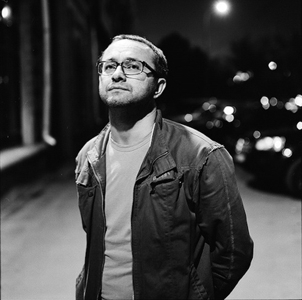The Return: Movie Review
03/15/2004
There are films that go easy on the dialogue because they just don't have a lot to say: set a camera up in front of an actress who looks good pouting in existential ennui, throw something classy on the soundtrack and just hope it all works out.
Then there are the films that have plenty to say, spend even longer than they need to say it, and you wish they would just shut up already. Andrei Zvyagintsev's 2003 festival hit The Returnis a film without a lot of dialogue or story, and wonderfully so: More words and action would have spoiled it.
Two young boys, Andrey (Vladimir Garin) and Ivan (Ivan Dobronravov), live with their mother and grandmother, the only memory of their father a single photograph of the man they've never seen. After a seemingly innocuous incident when Ivan, the younger brother, refuses to jump off a high tower into the water and is later scapegoated by weak-spined Andrey and their friends (the importance of this only becomes apparent at the shocking climax), their mother announces that their father (Konstantin Lavronenko) has returned. He's a gray-haired question mark with a sour puss and a slight air of danger; no information is given about where he's been, or why he's back.
After an uncomfortable dinner (this is not a family of big talkers) in which the father orders that each of the boys be given a glass of wine, they find out he's going to take them on a two-day fishing trip the next day; the information leaves the boys, suddenly given a father, barely able to sleep for the excitement. Once they hit the road, though, things start getting creepy when it becomes apparent they're going to be gone for much longer than two days. The father appears to be on some strange mission that only he is clued in to, driving them further and further into rural Russia: All the boys know is that he has a lot of money in his wallet and won't tell them who he's talking to on the phone. Ivan's pouty stubbornness gets him in trouble, with the taciturn father all too eager to teach him lessons about obedience, leaving him stranded for hours in the rain just to prove a point.
By the time they arrive at their destination, the mystery is still unsolved, any explanation of the journey being dangled just out of reach by the filmmakers, and the tension between Ivan and the father ratcheting higher and higher. The film ends with a stunning death in the middle of nowhere, but even that doesn't clue you in to the riddle at the core of this bleached, ruminative story. The characters aren't much help, either, with the father given to gnomic pronouncements and the brothers alternating between stoicism and mostly nonverbal frustration.
The Return unfolds at such a calm pace that odd things take on enormous importance, but the director and writers are still able to avoid attaching weighty symbolism to everyday objects. The simplicity of the story and the sad beauty of its lengthy Russian landscapes, desaturated colors and mournful winds, are actually enough to keep viewers engaged without burdening the film with unwarranted pretensions and extraneous dialogue. The Return may not be more than the sum of its parts, but that's quite enough. Three leave, two come back, and what happens in between is a thing of odd beauty.
Aka Vozvrashcheniye.
No turning back now.
www.filmcritic.com
